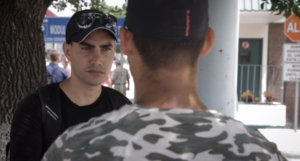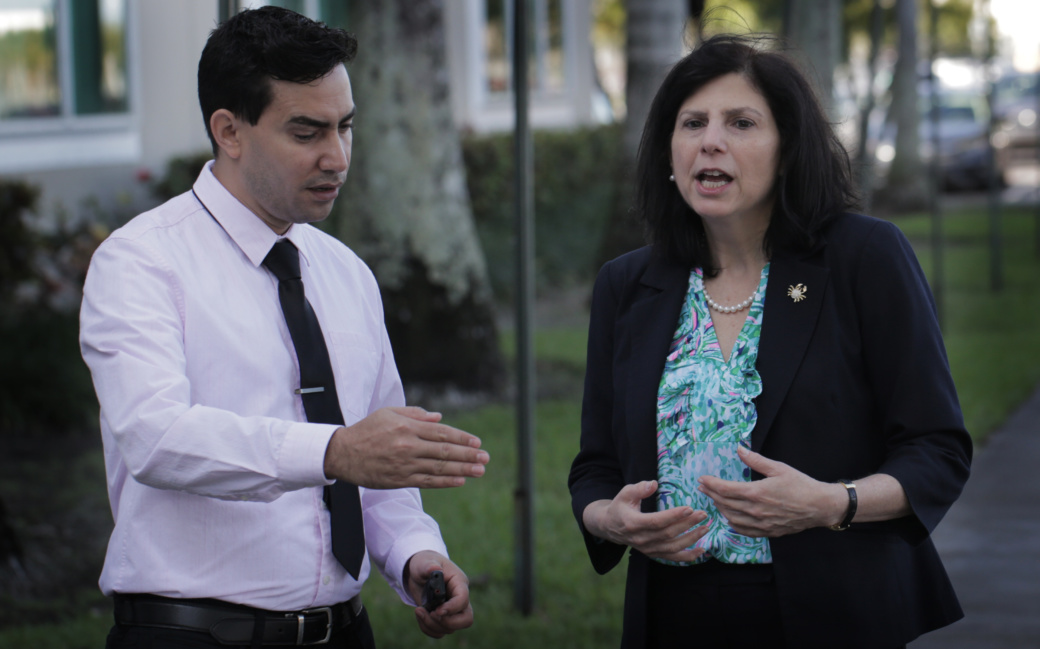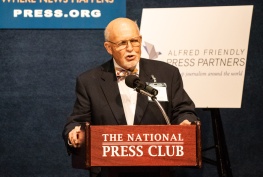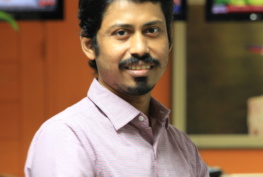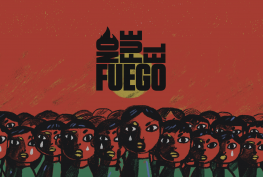 Editor’s note: Mario José Pentón emigrated from Cuba to the United States via Guatemala and Mexico in late 2015, a dangerous 1,600-mile odyssey using a “coyote” to get across the border. During his Alfred Friendly fellowship in 2016, Pentón developed multimedia reporting skills at the Missouri School of Journalism, applied them during his internship at el Nuevo Herald and taught them to his colleagues at 14ymedio, Cuba’s first independent news platform.
Editor’s note: Mario José Pentón emigrated from Cuba to the United States via Guatemala and Mexico in late 2015, a dangerous 1,600-mile odyssey using a “coyote” to get across the border. During his Alfred Friendly fellowship in 2016, Pentón developed multimedia reporting skills at the Missouri School of Journalism, applied them during his internship at el Nuevo Herald and taught them to his colleagues at 14ymedio, Cuba’s first independent news platform.
While many other Cuban émigrés left out of desperation or fear, Pentón is clear on why he came to the United States. “It was the possibility that I could help Cuba,” he said for his profile story in 2016. He’s now working full time for both the Miami Herald’s sister paper and 14ymedio, primarily reporting on Cuba through his large social media network and letting people know what’s really happening on the secretive island.
By Mario José Pentón
The last few weeks have been crazy busy. My co-worker just gave birth to a beautiful baby, so the job of covering Cuba falls on me almost completely. I doubt that without the training I received in Missouri with Alfred Friendly and without the experience at the Miami Herald, I could not have endured so much work.
On April 16, during the eighth congress of the Communist Party, Raúl Castro, Fidel’s younger brother, formally withdrew from the leadership of the only party allowed in Cuba. This was a historic event because, for the first time in 62 years, a Castro did not direct the destinies of the Cuban nation. At least in name.
The reporting we did at the Miami Herald was focused on helping people understand the meaning of this change of command. We included the perspectives of analysts and experts and the thoughts of Cubans inside their country. The island is experiencing its worst crisis in 30 years, just like in the 1990s when I was born, what is called a “special period” there.
Covering Cuba is not easy. We are more than 200 miles away and we face among other things the demonization by the regime and censorship. Agents of the secret police of the regime have threatened my relatives for the work I do, to give you an example.
Today’s Cuba is a country eager to express itself freely, but still living in fear after decades of censorship and repression. Covering the coronavirus pandemic has been complicated by the paucity of official media and censorship. There is evidence that Cuba manipulates the statistics of Covid19 deaths and illnesses at the same time that it carries out a very strong propaganda campaign to sell its vaccine candidates and medicines that are not tested against the coronavirus.
Without tourism for months because of the pandemic restrictions, the fragile Cuban economy has been left without one of its main sources of financing. It turns out that Castroism for 60 years has not been able to create an efficient industrial base. For decades, the country lived on subsidies from the Soviet Union, an estimated $65 billion in all, and then was aided by the oil wealth of Venezuela until the leadership led that country to the worst crisis in its history.
The economic crisis that the island is experiencing is palpable as scarcity increases. Lines to buy food are seen all over Cuba. In the midst of the coronavirus pandemic, the government adopted a series of long-delayed reforms such as the unification of the currency, which collapsed the purchasing power of Cubans by more than 50 percent, according to economists. The Cuban economy is one of the hardest hit in Latin America because the crisis had been brewing before the pandemic.
In the midst of this crisis, and with an increase in repression to a level unseen since the thaw initiated by the Obama administration, many Cubans see only one way to salvation — the sea. They try to reach the shores of Florida without knowing whether they will drown, or get caught by authorities in the water or on land and returned to the island. So far this fiscal year, the number of “rafter” interceptions has doubled. I have had to write sad stories, such as the case of a mother and her two young children who died when a boat taking them to Miami capsized.
As the island plunges into another crisis, pro-democracy activism in Miami picks up steam. A group of internationally known artists decided to break with the regime and sing for freedom. Hence the song Patria y Vida, which the regime has taken as an affront.
On the island, several movements led by artists have raised their voices calling for greater civic freedoms. This led to unusual protests in Havana and to episodes such as those that took place in the San Isidro neighborhood, on the outskirts of the capital: people prevented the police from arresting dissident artists and sang Patria y Vida — a song forbidden by the authorities — in the middle of the street.


